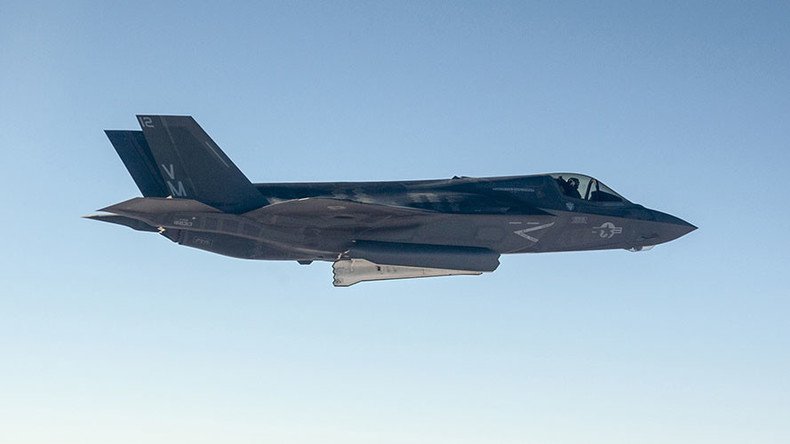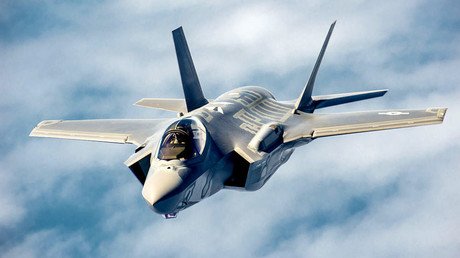F-35 declared 'ready for combat' after 15 years in making

It's been long fifteen years and numerous glitches and repairs, but the first squadron of F-35As is ready for battle, the US Air Force declared.
Air Combat Command head, General Herbert “Hawk” Carlisle, declared the F-35A operationally capable on August 2, almost fifteen years after Lockheed Martin was awarded the contract for the Joint Strike Fighter, and a year after the Marine Corps declared operational its version of the jet, the F-35B.
— Air Combat Command (@USAF_ACC) August 2, 2016
The first operational F-35A formation will be the 34th Fighter Squadron, located at Utah's Hill Air Force Base. Its 12 combat-ready jets can now be sent to operations anywhere in the world, Defense News reported.
The fifth-generation stealth fighter jet can be deployed globally to provide "basic close-air support, air interdiction and limited suppression and destruction of enemy air defense missions,"according to Defense News.
Carlisle made the announcement despite the issues with the jet’s software – to the point where pilots have had to reboot the radar in-flight – and the ongoing problems plaguing the maintenance program, known as Autonomic Logistics Information System (ALIS).
“The F-35 program’s record of performance has been both a scandal and a tragedy with respect to cost, schedule, and performance,” Arizona Republican John McCain, chairman of the Senate Armed Services Committee, said at a hearing about the F-35 in April, calling the program a “textbook example” of the need to reform the “broken” defense acquisition system.
Estimates have put the lifetime cost of the F-35 program at just under $1.5 trillion.
Burlington Air National Guard Base in Vermont is scheduled to host the next operational squadron of F-35As, with 18 jets intended to replace its contingent of F-16s, according to the Air Force. Two more F-35A squadrons of 24 jets will be sent to the Eielson Air Force Base in Fairbanks, Alaska by 2020.
F-35C, the variant intended for use by the Navy on aircraft carriers, should reach operational capability by February 2019, under the original schedule set by the Pentagon.














